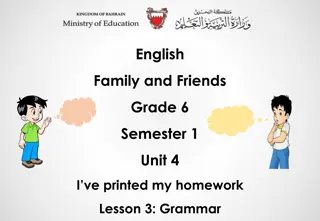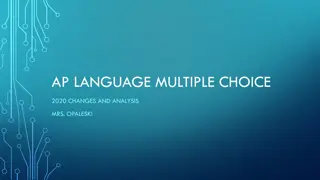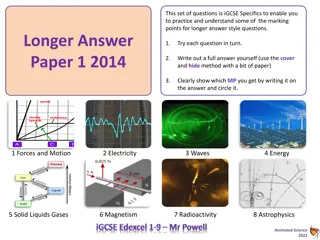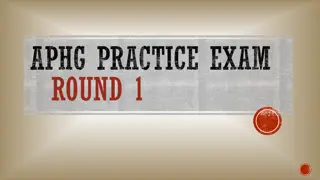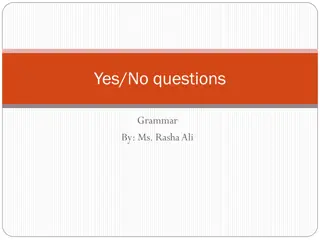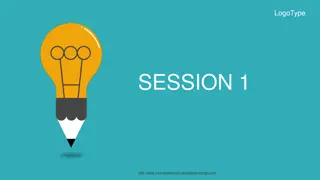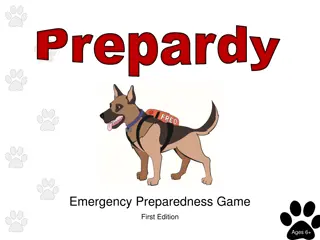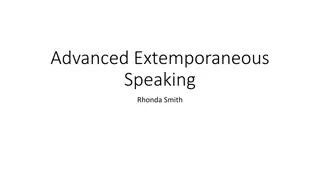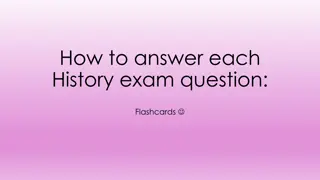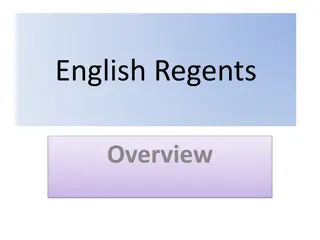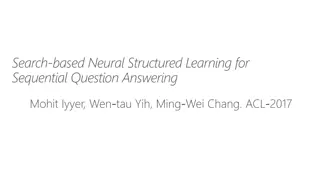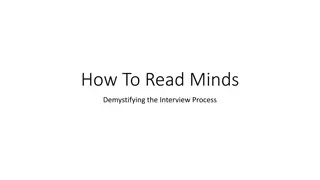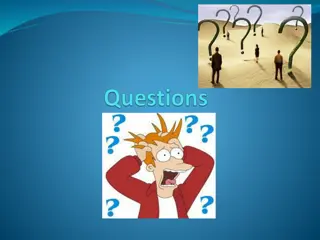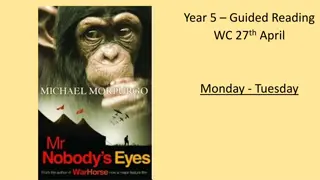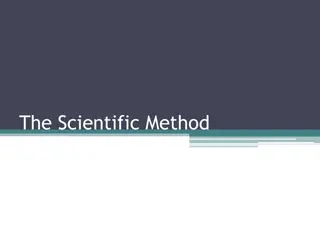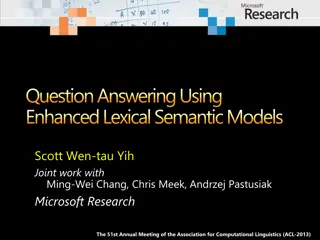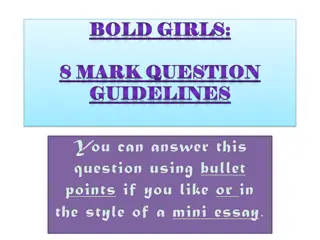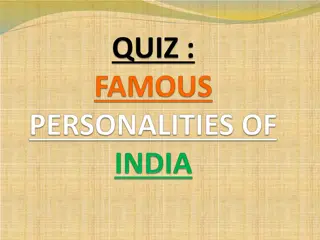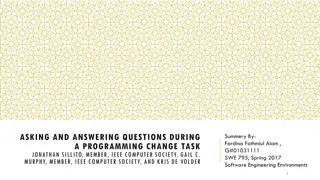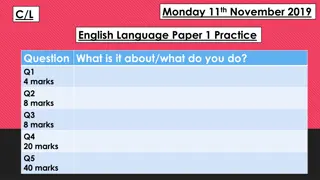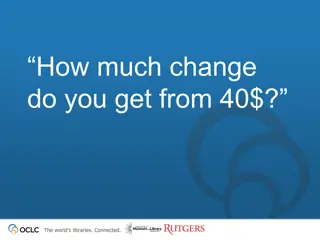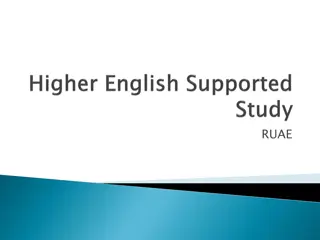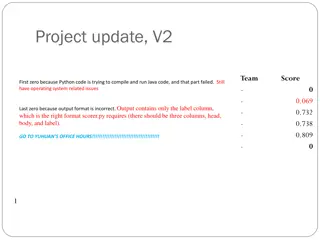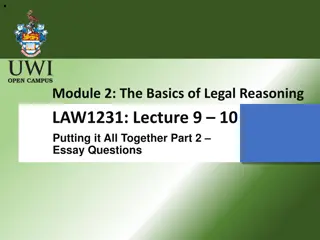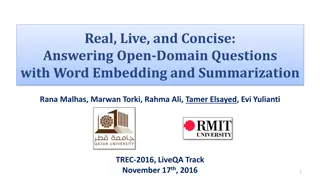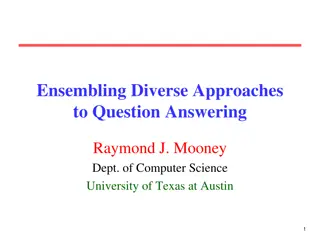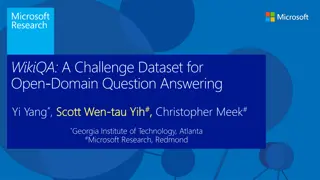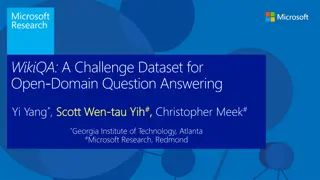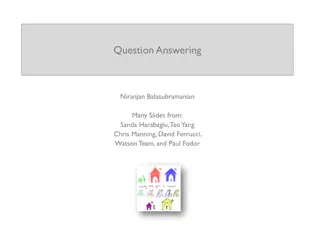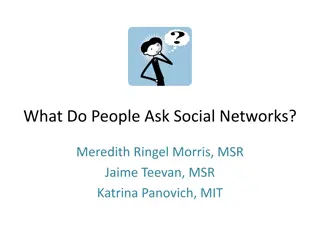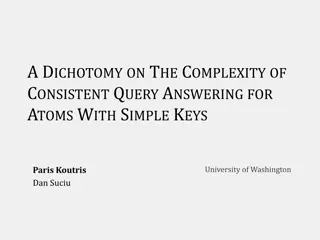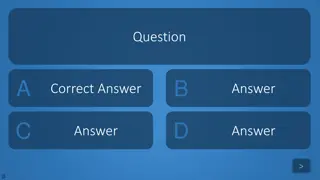Learning Present Perfect in Yes/No Questions - Grade 6 English Grammar Lesson
Explore how to identify and use the present perfect tense in Yes/No questions through the engaging lesson on homework printing. Discover the structure and examples of asking and answering such questions correctly. Practice forming Yes/No questions using the present perfect tense with Cindy's chores.
14 views • 10 slides
AP Language Multiple Choice 2020 Changes and Analysis by Mrs. Opaleski
Overview of the AP Language multiple-choice exam changes for 2020, including question types, tips for answering questions effectively, and strategies to optimize your performance. The exam consists of 45 questions in 60 minutes, focusing on rhetorical analysis and composition tasks based on passages
0 views • 31 slides
IGCSE Physics Practice Questions: Forces and Motion, Radioactivity, Terminal Velocity
Practice answering IGCSE Physics longer answer questions on topics like forces and motion, radioactivity, and terminal velocity. Develop your understanding by reviewing model answers and marking points. Enhance your exam skills and knowledge with detailed explanations and examples.
0 views • 8 slides
Interactive English Lesson: "Write to Me Soon!" for Class Five
Welcome to an engaging English lesson for Class Five students titled "Write to Me Soon!" led by Assistant Teacher Md. Mustafa Kamal. The lesson focuses on enhancing reading and writing skills through activities like answering True or False questions and correcting false sentences. Students will also
0 views • 16 slides
Geography Practice Exam Round 1 Questions
Practice your AP Human Geography knowledge with these multiple-choice questions covering topics such as demographic indicators, cultural diffusion, population growth, cultural landscapes, and urban land use patterns. Test your understanding of concepts like fertility rates, diffusion types, populati
0 views • 106 slides
Understanding Yes/No Questions in English Grammar
Yes/No questions in English grammar are essential for communication. These questions have two basic types - Yes/No questions and Wh-questions. Yes/No questions, also known as closed questions, have only two possible responses - Yes or No. To form a Yes/No question, verbs like BE, DO, HAVE, or modal
0 views • 9 slides
Enhancing Language Skills Through Wh-Questions Workshop
This workshop focuses on developing language skills through the use of wh-questions. Participants engage in pair work, individual activities, and a presentation to practice asking and answering personal questions. The session includes activities such as writing personal questions, answering question
1 views • 8 slides
The Importance of Research Methods in Building Knowledge and Answering Questions
Research methods play a pivotal role in shaping how we construct knowledge, address research inquiries, and determine the questions we can explore. Practices in research are evolving with open-science initiatives, data sharing, and innovative methods across interdisciplinary fields. Objectives have
0 views • 21 slides
English Lesson: Rima and the Seed - Unit 15, Lesson 1
In this English lesson, young learners engage in activities involving a story about Rima and a seed. They review the previous lesson, listen to simple commands, understand questions, and enjoy stories. The lesson focuses on developing listening, speaking, and reading skills, such as recognizing Engl
0 views • 18 slides
Advancements in Open Question Answering Over Text and Tables
Open question answering over tables and text is a challenging area in natural language processing. Various paradigms such as text-based QA, table/KB-only QA, and combined text and table QA have been explored. Incompleteness in answering specific questions like identifying the runner-up song on Billb
0 views • 24 slides
Advancements in Knowledge Graph Question Answering for Materials Science
Investigating natural language interfaces for querying structured MOF data stored in a knowledge graph, this project focuses on developing strategies using NLP to translate NL questions to KG queries. The MOF-KG integrates datasets, enabling query, computation, and reasoning for deriving new knowled
0 views • 13 slides
Prepardy Emergency Preparedness Game: First Edition - Ages 6+
This is the First Edition of the Prepardy Emergency Preparedness game designed for ages 6 and above. It includes categories like Make a Plan, Make a Kit, Stay Informed, and Resources, each with questions focusing on emergency preparedness. Players earn points by answering questions in the form of a
0 views • 31 slides
Reflections Under the Answering Sky: An Ode to Loneliness and Connection
Exploring themes of loneliness and connection, 'Under the Answering Sky' delves into the complex emotions evoked by solitude and the desire for companionship. Through vivid imagery and thoughtful lyric and figurative devices, the poem contemplates the interactions between the living and the dead, hi
0 views • 7 slides
Mastering Extemporaneous Speaking Techniques
Enhance your extemporaneous speaking skills with tips on answering questions, types of questions, and crafting effective responses. Learn about umbrella answers, unified analysis, and the importance of providing independent points to support your arguments.
0 views • 32 slides
CSC8503 Revision Lecture Overview - Exam Key Features and 2015/16 Exam Questions
Discussion of key features of the paper, review of last year's questions, exam details, and analysis of 2015/16 exam question 1. Detailed exploration of elements like Finite State Machines (FSM), states, transitions, trigger conditions, and specific details on the number of states, connections, and
2 views • 28 slides
Effective Strategies for Tackling History Exam Questions
Discover targeted approaches for answering specific History exam questions, including analyzing features, evaluating sources, citing evidence, comparing periods, explaining reasons, and forming arguments. Tips range from describing features of a topic in Whitechapel to evaluating source usefulness a
1 views • 8 slides
Comprehensive English Regents Exam Overview
The English Regents exam consists of four parts: Listening Passage, Reading Comprehension, Literary Analysis, and Critical Lens Essay. Part One involves listening to a passage and answering questions. Part Two tests reading comprehension with non-fiction passages. Part Three focuses on analyzing lit
0 views • 10 slides
Dynamic Semantic Parser Approach for Sequential Question Answering
Using a Dynamic Semantic Parser approach, the research focuses on Sequential Question Answering (SQA) by structuring queries based on semantic parses of tables as single-table databases. The goal is to generate structured queries for questions by defining formal query languages and actions for trans
0 views • 23 slides
Mastering the Interview Process: Demystifying Mind Reading Techniques and Interview Strategies
Dive into the art of decoding interview processes with tips on making informed decisions, handling rejection, and answering common interview questions effectively. Learn to prepare, understand different interview formats, and navigate through hypothetical and functional questions like a pro.
0 views • 24 slides
Understanding Different Types of Questions and Short Answers in English Grammar
This content covers various question forms in English grammar, including general questions, special questions, alternative questions, tag questions, direct and indirect questions, yes-no questions, and short answers. It explains the structure and usage of each type of question with helpful examples
1 views • 24 slides
Year 5 Guided Reading Activities and Comprehension Questions
Engage in guided reading activities for Year 5 students, including speed word-finding challenges, exploring tricky vocabulary, reading aloud Chapter 3 of "Mr. Nobody's Eyes," and answering comprehension questions. Enhance reading skills by skimming, scanning, and understanding vocabulary in context.
1 views • 14 slides
Understanding the Scientific Method and Examples
The scientific method is a systematic approach to answering questions and solving problems. It involves steps like observation, asking questions, forming hypotheses, collecting data, organizing data, and drawing conclusions. This method helps researchers find answers efficiently and allows others to
0 views • 9 slides
Enhanced Lexical Semantic Models for Question Answering - ACL 2013 Study
Utilizing enhanced lexical semantic models, this study presents approaches for sentence selection in question answering tasks, emphasizing tree-based techniques like tree edit-distance and quasi-synchronous grammar to match dependency trees. It discusses challenges in dependency tree matching, compu
0 views • 34 slides
Bold Girls: 8-Mark Question Guidelines and Practice Questions
Explore guidelines for answering 8-mark questions on the play "Bold Girls," focusing on elements such as character roles, central themes, relationships, and dramatic techniques. Practice questions are also provided to enhance understanding and preparation for examination scenarios.
0 views • 5 slides
Quiz Competition on Famous Personalities and Freedom Fighters
The quiz competition involves six teams, each consisting of two students, answering questions about famous personalities and freedom fighters. Students earn one mark for each correct answer in the 6 rounds with no negative marking. Images are provided to identify the personalities. Questions range f
0 views • 45 slides
Understanding Programmer Questions and Tool Support During Code Evolution Tasks
This study investigates the types of questions programmers ask and how well existing tools support them during software evolution tasks. It introduces a catalog of 44 question types and discusses behaviors observed while answering these questions. The study highlights the gaps in tool support for pr
0 views • 11 slides
English Language Paper 1 Practice Questions and Timings Guide
Enhance your English Language Paper 1 skills with practice questions under timed conditions. Learn how to effectively allocate your time for each question and analyze language use in the given extracts. Master the art of reading questions and extracts first for a focused approach to answering. Get r
0 views • 22 slides
Analyzing Failed Information Seeking Questions in Social Q&A Services
The research focuses on unsuccessful information seeking questions in social Q&A platforms, aiming to understand why some questions fail and proposing ways to improve the structure to enhance successful answers. Utilizing data collection methods via the Yahoo! Search API, the study identifies and an
0 views • 21 slides
Techniques for Effective Passage Interpretation and Question Answering
In this guide, learn strategies for analyzing reading passages, summarizing content, and effectively answering questions. Discover the importance of pre-reading, highlighting key information, and understanding question types. Practice with tasks like creating mind maps, summarizing passages in sente
0 views • 39 slides
Question Answering Systems in NLP: Overview and Applications
Question answering systems in natural language processing (NLP) have evolved significantly, offering solutions beyond just retrieving relevant documents. These systems cater to the fundamental human need for answers to specific questions. They excel in finding answers within document collections, da
0 views • 94 slides
Mastering Legal Essay Questions: Essential Tips and Strategies
Enhance your legal reasoning skills by understanding how to effectively structure and approach essay questions. Learn key techniques such as starting with outlining your points, avoiding common mistakes, and focusing on important legal aspects. By following these guidelines, you will be better equip
0 views • 19 slides
Real-time Question Answering Using Word Embedding and Summarization Techniques
This research project aims to improve question answering over social media platforms by leveraging word embedding and summarization methods. The approach involves retrieving a large set of candidate answers from various sources, learning to rank these answers, and summarizing the top-ranked ones. Te
0 views • 22 slides
Ensembling Diverse Approaches to Question Answering
Diverse types of question answering approaches include factoid querying, compositional querying of structured databases/knowledge graphs, reading comprehension, and visual question answering. Limitations of factoid question answering are also discussed, highlighting the need for specific queries and
0 views • 28 slides
WikiQA Dataset: Open-Domain Question Answering Challenges
WikiQA Dataset provides a challenge for open-domain question answering, focusing on identifying answers from large-scale knowledge bases such as Freebase and high-quality text sources like Wikipedia. The dataset includes questions sampled from search engine query logs, with candidate sentences sourc
0 views • 24 slides
Open-Domain Question Answering Dataset WikiQA Overview
This content discusses the WikiQA dataset, a challenge dataset for open-domain question answering. It covers topics such as question answering with knowledge base, answer sentence selection, QA sentence dataset, issues with QA sentence dataset, and WikiQA dataset details. Various aspects of open-dom
0 views • 24 slides
Exploring Question Answering Techniques in AI
Delve into the intriguing world of question answering with insights on various types of QA tasks and approaches like reading-based QA, reasoning-focused systems, and graph-based reasoning. Understand the relevance of QA in today's mobile world, its utility as a benchmark for AI, and its application
0 views • 65 slides
Lesson on Street Child Identity & Multiple Choice Questions
Explore a lesson on the identity of Amerigo, a street child, and test your understanding with multiple-choice questions. Learn about Amerigo's life, challenges, and experiences as a street child. Assess your comprehension by answering questions related to vocabulary, characterization, and the narrat
0 views • 12 slides
Understanding People's Questions on Social Networks
This research explores various aspects of questioning behavior on social networks, including the types of questions asked, how they are phrased, who asks them, which questions receive answers, and motivations for answering. It also delves into known information about collaborative search, online que
0 views • 19 slides
Dichotomy on Complexity of Consistent Query Answering
The research paper presents a dichotomy on the complexity of consistent query answering for atoms with simple keys. It discusses repairs for uncertain instances in a schema with key constraints, as well as the concept of consistent query answering. The document addresses the problem statement of cer
0 views • 26 slides
Challenging Quiz Questions on Various Topics
Test your knowledge with a series of challenging quiz questions covering a wide range of topics. From answering correct sequences to identifying patterns, these questions will keep your mind engaged and curious. Challenge yourself and see how many you can get right!
0 views • 18 slides
